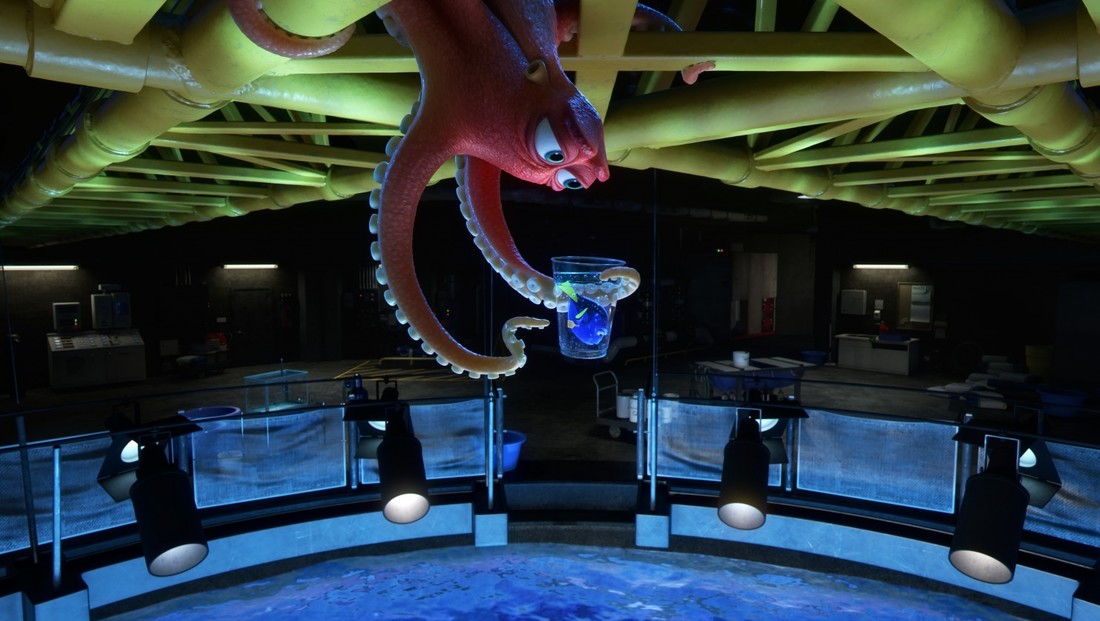Where other animated films aim to grab adults by throwing in hacky double entendres and flimsy cultural references, Pixar shoots for the more mature, child-accompanying crowd by smuggling adult emotions in a kid-friendly package. The form this takes in Finding Dory is the stress of raising a disabled child, something Pixar presents in the most affirming way possible. Child Dory, an adorable, giant-eyed creation with the inability to remember details from more than a few seconds in the past, spies on her parents as they tearfully worry about how she'll ever take care of herself. However, when they're with her, it's constant reinforcement and trying to find the one specific method of instruction that will work for daughter. This seems pitched squarely at the neural atypical crowd, where something like autism isn't the curable disease that the anti-vaxxer crowd believes it is, but a unique way of processing the world that has to be deciphered, something that will make future success more difficult but not impossible. If so, that's a narrow zone to pitch to, but surrounding it is the readily apparent love and dedication that this blue tang family has for each other. The deeper relevance is present, but the surface reading is just as powerful.
In her pursuit to reunite with her family, Dory proves to be a worthy lead based on her ability to rope in everyone she meets, allowing repeat director Andrew Stanton to create new characters that steal the show. Dory's parents are a very sweet couple voiced with endless patience by Keaton and Levy. Olsen's Destiny is constantly bumping into things, and combined with Olsen's history of pitch-perfect physical comedy speech reactions, it's a funny character. O'Neill's Hank the Octopus ranks with some of the greatest recent Pixar creations, a creature that gets the spotlight during the end credits because Stanton knows what he's got on his hands. Likely inspired by increasingly prevalent web videos of octopi escaping from various enclosures, Hank cannot be contained camouflaging and maneuvering out of wherever he finds himself. O'Neill's irascibility is well-matched with Dory's irrepressibility, and she, of course, wears him down, resulting in a split-second shot of Hank briefly dropping his guard that shocked with its power. It's never in doubt that Hank was going to be able to keep Dory at tentacle's length, but the way he demonstrates her effect on him, and the way Stanton flits by it so quickly, was deeply affecting.
Not quite the complete package of earlier Pixar films, Finding Dory allows Nemo and Marlin get lost in the fray. Their impact on the plot is minimal and the strength of the film is almost entirely on the new characters. The clown fish are old news, and Stanton spends far too much time with them out of obligation to fans of the original. This foot-in, foot-out stance towards sequels is further evidence that Pixar should stick to standalone ideas. Finding Dory is a satisfying film comedically and emotionally, but in servicing the past, it's detracting from the present story. With an Incredibles sequel and a Toy Story sequel in the works, they're committing to this release strategy. Those films might be great, but there was a period of time when a new Pixar film was expected to be great. Hopefully, they can get back to that, instead of settling for satisfaction. B

 RSS Feed
RSS Feed